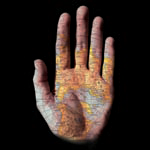
Principles of Sustainability
Chapter 1 - The Origins of Sustainability
Part 6 - A Planet in Peril
 Facts are prolific regarding environmental degradation and climate change. However, there is a large normative part of these debates that we as societies still struggle with. We need something more if we want to act on the basis of those facts. Scientists are good at describing the world but values dictate what we choose to do about it. The magnitude of these problems, the unknown consequences and the ethical implications for future generations, for the less fortunate, for children, expose our values and morals and call for unfaltering faith in the human spirit and in the world. These global problems demand what obligation we have to ourselves, to other humans, and to the world. Addressing these problems and creating positive change will require the parts of us that are not rational. These are the parts that love unconditionally, that forgive, that dream, that empathize.
Facts are prolific regarding environmental degradation and climate change. However, there is a large normative part of these debates that we as societies still struggle with. We need something more if we want to act on the basis of those facts. Scientists are good at describing the world but values dictate what we choose to do about it. The magnitude of these problems, the unknown consequences and the ethical implications for future generations, for the less fortunate, for children, expose our values and morals and call for unfaltering faith in the human spirit and in the world. These global problems demand what obligation we have to ourselves, to other humans, and to the world. Addressing these problems and creating positive change will require the parts of us that are not rational. These are the parts that love unconditionally, that forgive, that dream, that empathize.
The moral dilemmas we face in regard to sustainability revolve around three moral arguments. One is consequential, if we fail to act, what are the consequences of inaction and what are our moral obligations to act? The second is an argument about integrity, or doing what is right. It asks the question, what is our duty to other humans, and to the earth? The third is a question of virtue and who we want to be. What is the best a human being can be? What virtues should shape our character? Can virtuous people stand by and watch others suffer and can they knowingly destroy the earth? The following excerpts offer arguments and clarity to these moral questions. Although we face our greatest challenge, we can proceed with dignity and grace and enlist the power of the human heart and mind to rectify our relationship with this world and each other.
These essay excerpts are taken from a collection of essays by over 80 world leaders in the book Moral Ground: Ethical Action for a Planet in Peril, edited by Kathleen Dean Moore and Michael Nelson. The intentions of this book were to 1) demonstrate global consensus on the ethical reasons for which we have a moral responsibility to respond to climate change and environmental degradation, 2) to provide arguments for this moral action regardless of religion, world view or status, and 3) to reveal that we are moral agents who can live lives that we believe in and we can live with integrity, compassion and joy and change our trajectory and relationship to the world.

![]()
Keywords
- Oren Lyons
- E.O. Wilson
- Scott Russell Sanders
- Pope John Paul II
- Ecumenical Patriarch His Holiness Bartholomew I
- Thich Nhat Hanh
- Bill McKibben
- Wangari Maathai
- Wendell Berry
Suggested Reading
-
Moral Ground: Ethical Action for a Planet in Peril. Edited by Kathleen Dean Moore and Michael P. Nelson. Trinity University Press, San Antonio, TX. 2010. 512 p.
- The Ethical Implications of Global Climate Change. Report by the World Commission on the Ethics of Scientific Knowledge and Technology (COMEST). United Nations Educational, Scientific and Cultural Organization (UNESCO) 2010. 39 p.
- Trajectories of the Earth System in the Anthropocene. Steffen, et al. Proceedings of the National Academy of Science, 2018.
(Introduction: Irene Shaver and Greg Möller. Photo credit: Trinity University Press and Office of Paul Sahre)
